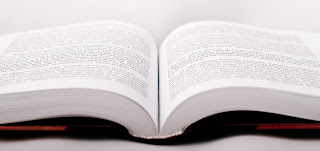.jpg)
"What is the difference between Faith, Religion and Hope, then?"
Let's play with allegories.
Let's say that your consciousness is a country. Faith is the monarch, Religion is the constitution, and Hope is the People. Like all good deductive thinkers, we’ll discuss this from the bottom...
Hope
"The promise given was a necessity of the past:
the word broken is a necessity of the present."
"The promise given was a necessity of the past:
the word broken is a necessity of the present."
Hope can shift the country's behavior. Ungoverned, hope can go on childish carnage. The People are the hardest to please: Nowadays, they want to legalize abortions, marijuana and same-sex marriages. They want free education plus allowances without ever giving back. They want things, and after these things are provided, they want more.
In return, the People feeds a country. The People are the economy, the history, the very life of a country. The People build ideas and buildings, grow trees and chop them off for furniture, or dig wells that will later spurt black stuff that can drown entire villages.
On a good day, Hope is individually governed by logic (which in this post, is nonexistent!), publicly governed by the constitution or/and the monarch. Usually, the People settle, if not grudgingly, between the conditions of the constitution and their personal wants. At least as far as convenience goes.
Religion
"There is no surer sign of decay in a country than to see the rites of religion held in contempt."
"There is nothing more difficult to take in hand, more perilous to conduct,
or more uncertain in its success,
than to take the lead in the introduction of a new order of things."
Religion, as the constitution, is like a bigfat textbook, filled with rules and codes of the People's conduct. Constitution needs to be steady and reliable. Constitution must also be pro democracy: Providing what the People needs.
Sub-Analysis: So why do people switch constitutions? Why do people switch religions? (Click here to follow that thought!)
The main outlines to any constitution are known to the public: What is legal, what isn't. What's tax deductible, and what aren't. Just like religion, a good constitution, one that has stood the test of time and diversity, is the kind that encompasses all possible changes, climates and conditions.
You can believe in a religion, but if it damns you every Friday, Sabbath and Sunday, you might want to switch to something more convenient or start a (spiritual) revolution. And as far as the public, king and constitution are concerned, as long that your deviations remain private in practice and consequence, you're on you own.
Faith
"To understand the nature of the people one must be a prince,
and to understand the nature of the prince, one must be of the people."
Amongst the three, Faith acts as the Monarch: the King. In countries of absolute monarchy, the King holds the final decision. The King's decrees are based on a number of considerations, but all of which are in accordance and consented by the constitution and the Majlis as-Shura (the Congress: Representatives of the Public).
Any monarch wanting to prolong his reign and unity of the nation would have to balance between both. You can't have loyalty for a monarchy if it doesn't go hand in hand with your hopes or constitution.
The power struggle – if any – between the elements we've discussed can shift between the spectrums, depending on necessity. History books are thick with examples: The French Revolution. The Balfour Declaration. The Obama Election.
Are we clear?
So, basically the only question left is:If there was a god in this allegory, where would He fit?
Fill me with your thoughts.
Sub-Analysis: The thought got me into a couple of conclusions:
- The Old Religions are great. They've been around for centuries for some good reasons. Plenty of generations have practiced and proven its value, many of whom have sacrificed lives for, just to uphold the right to practice.
- A Catholic once told me that, anyone who switches between the old religions, either from Islam to Judaism, Hindu to Christianity, is either doing it for convenience or lack of understanding for the original religion.
- The closest allegory I have to interfaith conversion is my Reverse Immigration. First, I became Saudi apostate. Then I converted to Indonesianism, and started sounding like a patriotic newbie. I hope that at some point all of the fervent neo-patriotism is gonna cool down. It's fun, but it can also be a mouthful!
...life's just a chain of phases to grow out of once the lessons are learned. Isn't it?
...click here to go back to where you left off...
Footnote:
All quotes in this post are from Machiavelli's Il Principe, available as eText for FREE at Project Gutenberg.


